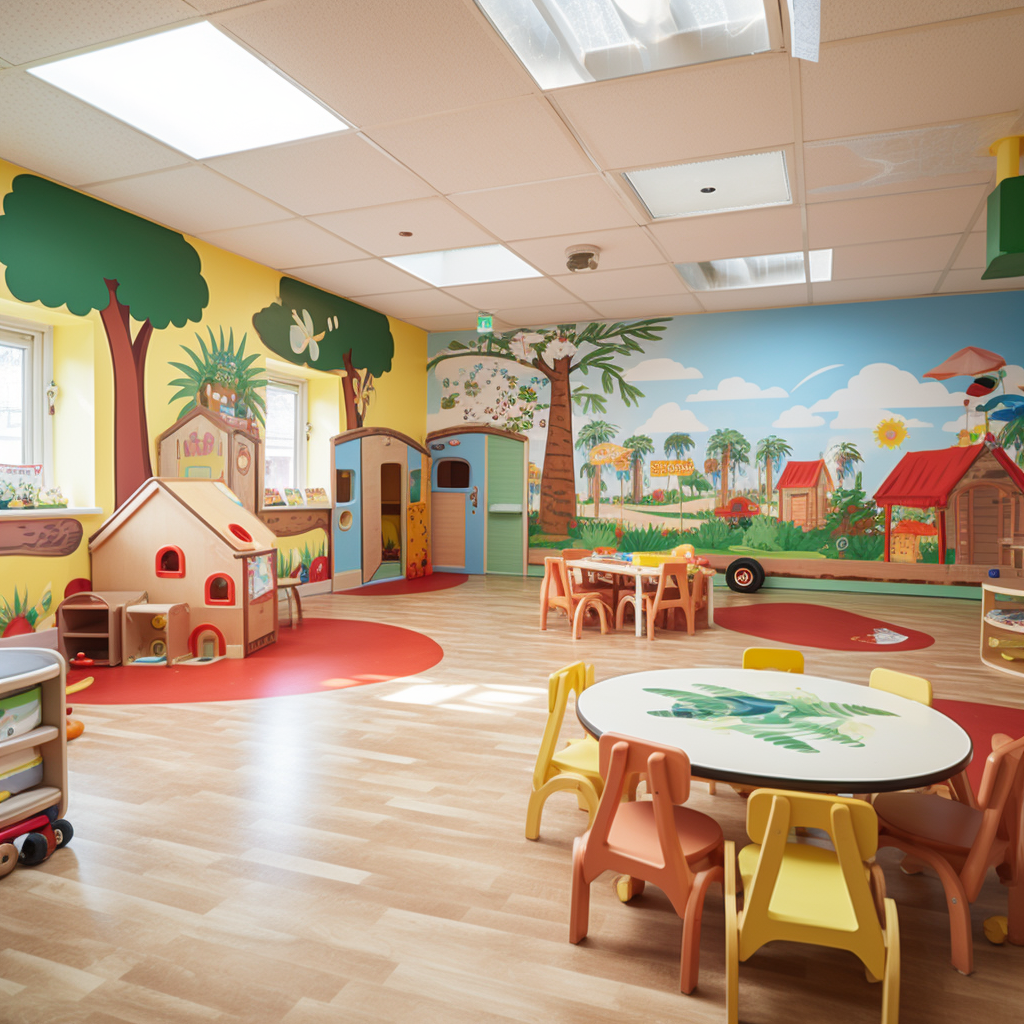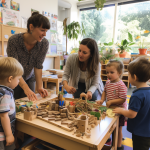
The realm of early years education is fundamental in shaping the formative years of children. It is a stage where the most crucial aspects of cognitive, emotional, and social development take place. Therefore, this field demands knowledgeable educators with a unique blend of skills and qualities. Early Years Careers delves into the essential skills and attributes required for excelling in early years education, a rewarding, challenging profession that is integral to shaping young learners’ futures.
The Role of an Early Years Educator
Early years educators have a profound impact on the development of children. They extend beyond the role of a traditional teacher, taking a holistic approach to nurture the minds and well-being of young learners. These educators are pivotal in fostering academic skills, emotional resilience, social abilities, and physical development. They play a crucial role in identifying and nurturing early talents, addressing developmental needs, and laying a robust foundation for lifelong learning and overall well-being.
Patience in Early Years Education
Patience is an essential quality in early years education. Working with children in their developmental stages requires a deep understanding of their unique needs and behaviours. Educators must manage various learning paces and behaviours with patience and grace. Developing this patience involves embracing techniques like mindfulness, reflective practice, and engaging in continuous professional development. This helps effectively understand and cater to young learners’ diverse needs and learning styles.
Creativity in Teaching Young Children
Creativity is the lifeblood of effective teaching in early years education. It is about transforming the learning experience into something both enjoyable and stimulating. Educators must continually innovate and integrate various methods such as storytelling, art, music, and the latest technological tools into their teaching. This approach ensures that the learning process is not only educational but also enchanting and memorable for the young minds.
Strong Communication Skills
Communication skills in early years education are multifaceted. It encompasses clear and effective interaction with children, building strong and empathetic relationships with parents, and maintaining productive collaborations with colleagues. These skills go beyond verbal communication, requiring the ability to actively listen, interpret non-verbal cues, and convey complex ideas simply and relatablely. This is essential in creating an inclusive and understanding environment for all students.
Emotional Intelligence
Emotional intelligence is crucial in early years education. It involves a keen awareness and management of one’s own emotions and the ability to empathise with the emotions of young children. This quality is pivotal in creating a nurturing and supportive environment, fostering trust and understanding, and aiding children in developing their emotional awareness and expression skills.

Adaptability in a Dynamic Environment
Adaptability is a key skill in the early years education sector. Educators must be prepared for unexpected situations and flexible in their teaching methods. This ability to adapt ensures that the learning environment is responsive and tailored to each child’s individual needs, fostering an atmosphere conducive to effective and inclusive education.
Educational Qualifications and Continuous Learning
A solid educational foundation in early childhood education is essential for a successful career. However, the learning journey continues. Continuous professional development is vital to stay updated with the latest educational trends, research, and pedagogical methods. This ensures that educators remain at the forefront of their profession, equipped with the knowledge and skills to provide high-quality education.
Time Management Skills
Effective time management is crucial for balancing the diverse aspects of teaching, planning, and administrative responsibilities in early years education. This skill involves meticulous planning, prioritising tasks, efficiently managing resources, and ensuring that each interaction with children is impactful and meaningful. Good time management ensures that educators can provide a well-structured and productive learning environment for their students.
Legal and Ethical Considerations
Understanding the legal and ethical framework surrounding early years education is fundamental for every educator. This knowledge encompasses familiarity with child protection laws, health and safety regulations, and ethical standards. It is crucial to ensure a safe, respectful, and nurturing environment for both children and educators. Staying informed about legal and ethical guidelines also helps educators navigate the complexities of their profession with confidence and integrity.
Building a Support Network
Building a strong professional network is invaluable in the field of early years education. Networking with fellow educators, industry experts, and professionals provides a rich source of ideas, support, and inspiration. It offers opportunities for collaboration, professional growth, and development. Participating in professional associations, conferences, and workshops is a key aspect of building such a network, allowing educators to stay connected with peers and abreast of new developments in the field.
Handling Stress and Maintaining Work-Life Balance
While immensely rewarding, the role of an early years educator can also be demanding and stressful. Managing stress and maintaining a healthy work-life balance is essential for sustaining a long-term career in this field. Effective strategies for stress management include mindfulness, regular physical activity, and cultivating a strong personal support network. These practices are crucial in handling the demands of the profession while ensuring personal well-being and preventing burnout.
Technology in Early Years Education
Integrating technology into teaching practices is increasingly important in today’s digital age. Educators must stay informed about the latest technological trends and understand how to incorporate these tools into their teaching effectively. This enhances the learning experience and educational outcomes for students. Technology can be a powerful tool for creating engaging, interactive, and innovative learning experiences that resonate with young learners.
Leadership and Team Management
Leadership and team management skills are essential in early years education. Educators must not only lead by example but also foster a spirit of teamwork and collaboration. This is particularly important when working with teaching assistants and other staff members. Effective leadership and team management create a cohesive and supportive learning environment, which is crucial for the overall functioning of an educational setting.
Conclusion
Embarking on a career in early years education is a continuous growth and evolution journey. It requires a mix of passion, resilience, creativity, and a commitment to lifelong learning. Aspiring educators must embrace these qualities to make a meaningful and lasting impact in the lives of young children. This profession offers the opportunity to shape the futures of the next generation, making it both a significant responsibility and a rewarding endeavour.
This expanded article delves deeper into the essential skills and qualities needed for a successful career in early years education, providing a thorough understanding of the multifaceted nature of this important role.






Leave a Reply